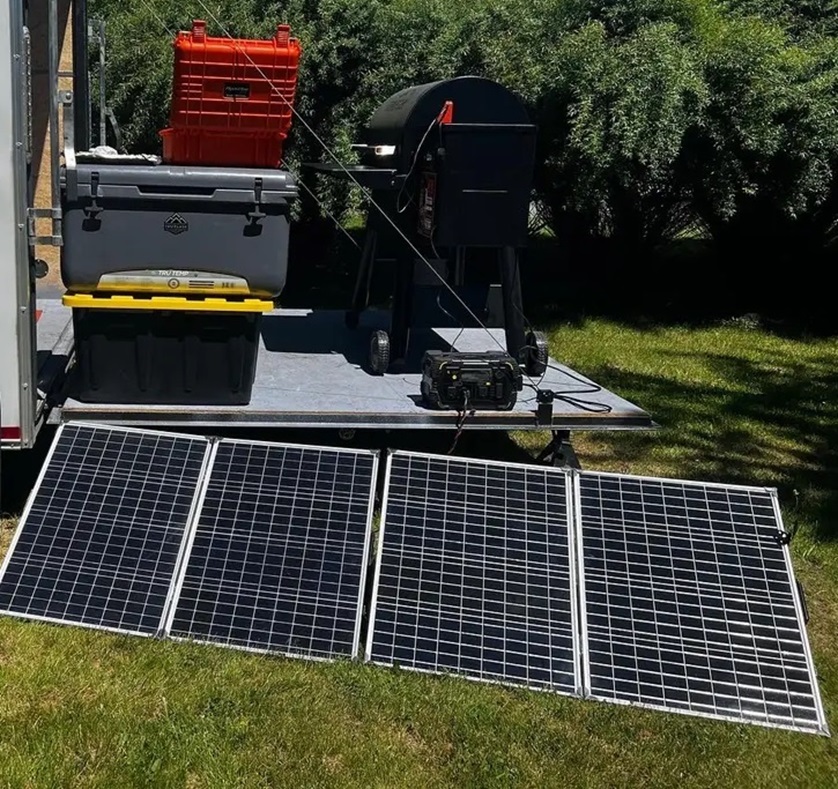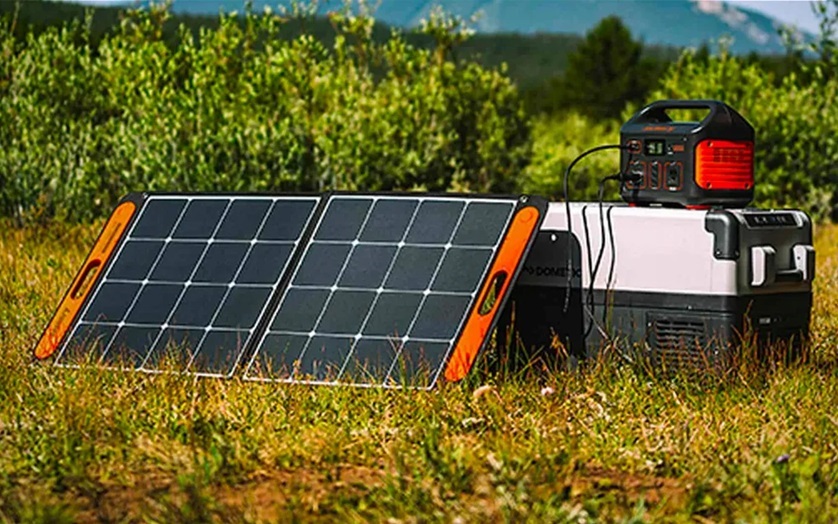Camping trips offer a refreshing escape from the hustle and bustle of daily life, inviting you to reconnect with nature and embrace simplicity. However, staying connected and powered up is essential for a comfortable experience. For outdoor enthusiasts who like to spend as much time in nature, camping solar panels are game changers. They provide a reliable and eco-friendly power source in the wilderness. Not all of them are created equal, though, and choosing the right one for your camping needs can make a significant difference in your trip’s success. So, let’s delve into what you need to consider when buying these devices.
12v Solar Panels

Among the variety of options, a lightweight 12v solar panel is an ideal choice for different reasons. One of the main advantages is its compatibility with your vehicle, making it incredibly convenient to use. Since most RVs and motorhomes are already equipped with 12-volt batteries for essential functions like lighting, water heater, and refrigerator power, it makes sense to go with a voltage system that easily integrates with your existing setup.
The 12-volt appliances can make life on the road easier. You can plug these outdoor solar panels directly into a standard 12-volt cigarette lighter receptacle. This simplicity of connection is a huge benefit that eliminates the need for complex setups or additional accessories. However, it’s essential to verify your power requirements and ensure that your vehicle and appliances are compatible to avoid any mishaps.
You can connect your 12v solar panel to your car, but it’s also compatible with certain trucks and RVs that have 12-volt receptacles. These receptacles are built to handle higher amperage needs, ensuring your devices run smoothly and efficiently. It’s always a good idea to consult both your vehicle and appliance manufacturers to confirm compatibility and power availability.
Wattage
When it comes to picking out the right solar camping panel, wattage is like the engine horsepower of your setup. The higher the wattage rating of your solar panel, the faster and more efficiently it can juice up your gadgets. If you’re always on the move and you need to recharge your appliances in a jiffy, opt for a model with higher wattage. Is a 100W solar panel enough for camping?
This appliance is a powerhouse when it comes to generating electricity, whether you’re basking in full sun or dealing with a bit of cloud cover. While there are plenty of competing models with hefty price tags, the 100-watt model offers top-notch performance without costing you a fortune. It’s the perfect balance of affordability and effectiveness, making it a no-brainer choice for anyone looking to harness the power of the sun on their camping adventures.
Portability
The size of your solar panel is directly tied to its power rating. The more watts it packs, the more space it needs to house all those solar cells. And those extra solar cells add up, making larger panels quite hefty. Bigger models have their perks, especially when it comes to generating more power. But if you’re planning on hitting the trails and need something light and nimble, you might want to opt for a smaller panel with around 100 watts. This strikes the perfect balance between power and portability. It’s compact enough to toss in your backpack without weighing you down, yet still packs enough punch to keep your devices charged up and ready for action.
Composition

When you’re choosing from various camping solar panels for sale, one important factor to keep in mind is the material they’re made from. You might not think about this at first, but the type of cells used can make a big difference in performance and efficiency. Most top-notch designs use monocrystalline solar cells, which are known for their high efficiency and long lifespan. These designs are typically more efficient than their polycrystalline counterparts, meaning they can generate more power even when space is limited.
This is particularly important when you’re out in the wild, trying to maximise your energy from a portable setup. Monocrystalline cells are also great at performing well in low-light conditions, such as on cloudy days or in shaded areas. So, if you’re camping in a forest or an area where sunlight might be sporadic, these panels are the way to go. They may be a bit more expensive upfront, but the reliability and efficiency they offer make them worth the investment.
Durability
Camping is generally considered a rough and ready recreational activity. It’s not like you’re just heading out to the supermarket down the road. When you’re out in the wilderness, the terrain can be unpredictable. Gravel roads leading to campsites can be riddled with potholes, and your solar panel will undergo constant opening and closing as you charge your devices. Given these conditions, you should pay close attention to the durability of the solar panel you choose.
You don’t want to end up with a device built from fragile materials that can’t withstand the bumps and knocks of outdoor life. Look for a model with strong seams and a robust carry handle that can handle being tossed into the back of your vehicle, set up on uneven ground, and exposed to the elements. It should be able to withstand a bit of rough handling without falling apart. After all, you need something that will last through many camping trips, not just a single outing.











